Dien Bien soldier Le Van Nhan, Ha Dong, Hanoi
The spirit of attack is boiling.
In October 1953, young man Le Van Nhan (Trieu Son district, Thanh Hoa province) had just turned 18 when he heard that the army was recruiting soldiers. The young man enthusiastically volunteered to go to battle to protect the Fatherland.
He was selected and sent to Phu Tho for training for 2 months, then marched to the Northwest and was assigned to Company 17, Battalion 564, Regiment 165, Division 312. His company was a fire support unit, equipped with machine guns, 60mm mortars and other types of firepower...
Upon arrival, to prepare for the attack on the French strongholds at Dien Bien Phu, he and his comrades dug trenches and fortifications. Mr. Nhan said: “To keep it secret, we hid our troops during the day, worked at night and kept a distance of 2 meters from each other. We dug trenches in every possible position; sitting, crawling, digging, whatever worked. But it was hard to avoid times when the enemy discovered us and concentrated their firepower to attack and stop our troops.” Despite the danger, no one wavered, keeping their determination to fight and win, waiting for orders to charge and destroy the enemy.

Immediately after the opening battle of Him Lam, Regiment 165 (Division 312) - Mr. Nhan's unit and Regiment 88 (Division 308) were assigned the task of attacking Doc Lap hill stronghold. Regiment 165 was in charge of the breakthrough attack from the southeast direction. At 3:30 a.m. on March 15, the order was given to open fire and attack. "Our artillery fired at enemy strongholds, supporting the infantry assault. It was dawn, and the battle ended when our troops repelled enemy infantry and tanks that came to relieve the siege. With brave fighting spirit and overwhelming attack power, at 6:30 a.m. on March 15, we completely controlled Doc Lap stronghold, completely destroying the North African battalion reinforcements" - Mr. Nhan recounted.
The moment Mr. Nhan recorded was when we switched to the general attack on the morning of the historic May 7th. He recalled: “On May 6th, we completed the mission of attacking the 506 stronghold. After attacking and stationing there, the next morning around 9-10 o'clock, I and a comrade were sent to the rear base to get food for the unit. After getting it, the two of us carried it back but got lost because at that time the trenches were as dense as a chessboard. But wherever we went, we saw our soldiers holding guns and pointing them at the enemy bunkers. The French soldiers were defeated and panicked. When we surrounded them, the French had no chance to support each other anymore. The opportunity had come, the time had come, on the morning of May 7th, the general attack was ordered, all firepower was fired at the remaining enemy strongholds. By the afternoon, the enemy troops came out in large numbers like ants, at that time we were very happy.”
What Mr. Nhan is extremely proud of is that his family has 4 brothers who joined the fight against the French. 3 of them fought on the same front at Dien Bien Phu battlefield. They all contributed and fought with all their might, contributing to the victory.
Nguyen Hien (written)
Dien Bien soldier Pham Van Ngan, Thanh Truong ward, Dien Bien Phu city
Determined to go to war
70 years ago, I was a soldier in Battalion 249, Regiment 174, Division 316. At that time, the young people of Hai Duong were very enthusiastic about going to war! Everyone volunteered to go to the battlefield. Seeing that, I also eagerly registered to join the army. At that time, I was small, light, and young, so the commune did not allow me to go. I firmly told my comrades in the commune that if they did not let me join the army, I would go to... the enemy's post. That was the only way I could go to the battlefield!
Then I joined the army, received training and studied politics in Thanh Hoa province. At that time, I saw more and more how miserable our country was, how hungry and miserable our people were under the colonial rule. I remembered the scenes of the French coming to kill and burn. Right in my village, I saw it directly, it was so painful! From then on, I was even more determined to go to the battlefield.
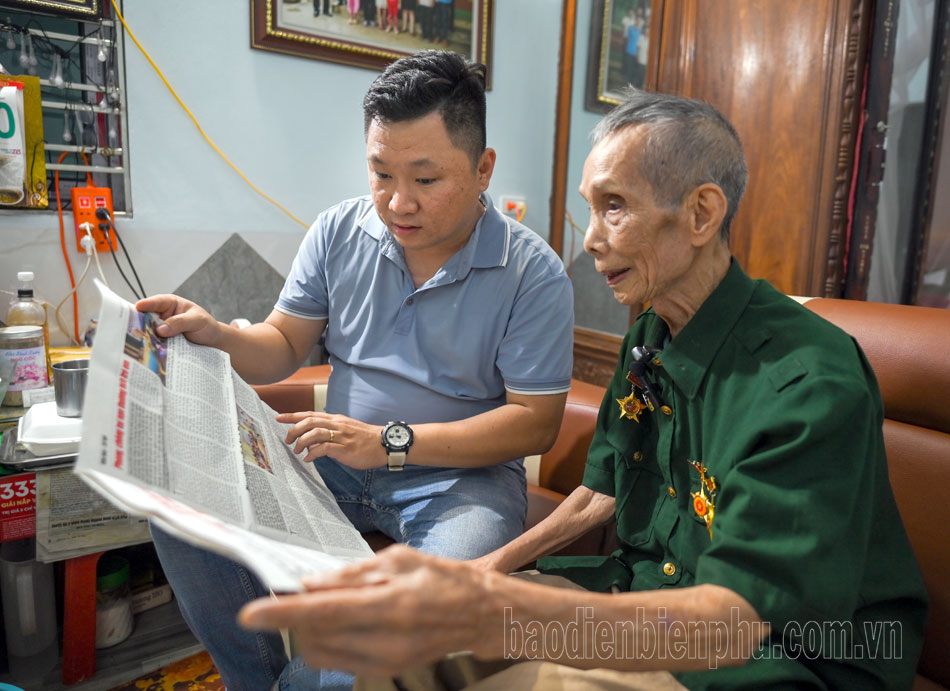
When we reached Dien Bien, my unit was stationed in the Ta Leng area, Thanh Minh commune, Dien Bien Phu city today. Every afternoon at around 5 pm, we would dig trenches, gradually encroaching on the enemy's resistance center. While digging, enemy flares were fired as brightly as day. Enemy planes were constantly dropping bombs. Many of our soldiers were sacrificed. But my comrades and I were not shaken, still steadfastly holding our ground. Entering the campaign, my unit participated in the attack on A1 hill - the longest, fiercest, and most difficult battle in the entire Dien Bien Phu Campaign. As commandos, we were often assigned the task of placing explosives to destroy the enemy's barbed wire fences for our comrades to charge. But the battle was so fierce, our soldiers sacrificed as soon as they reached because the enemy had the advantage of being on high ground and entrenched in underground bunkers. The same was true for my comrades in my unit, with heavy casualties. But the spirit of the brothers was not shaken, they only knew how to fight bravely. The commander shouted "Forward" and the brothers just charged forward, not thinking about casualties, considering death as non-existent... In this battle, I was also wounded, losing a hand. At that time, I was young and "enthusiastic", so I did not feel any pain. After the medical team gave first aid, the unit ordered me to retreat to the rear to recuperate, but I refused to return, continuing to stay with my comrades. When my wound had healed and I felt better, I fought with my comrades again. I still remember the commander telling me not to stay in the "frog pit" when the explosives exploded, but to go to the trenches to take shelter. When the explosives exploded, hearing the sound of our soldiers charging, I knew for sure that the campaign would be victorious. Indeed, just a few hours later, the news of victory was heard, my comrades and I cheered and danced in the joy of victory...
Mai Giap ( written)
Liaison Pham Ngoc Toan, Tan Phong Ward, Lai Chau City , Lai Chau Province
Citizens leading the way
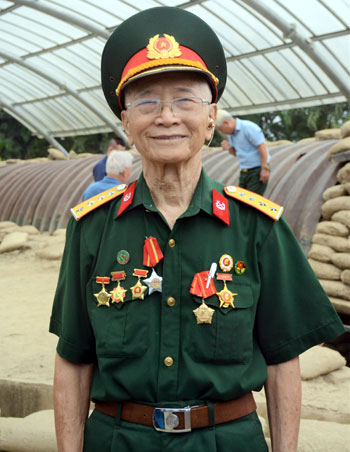 |
At the age of 13, Pham Ngoc Toan (from Dong Hung, Thai Binh) witnessed the French bombing, leveling houses, temples, and dozens of people in his village and commune, losing their lives, including his older brother. With a burning hatred for the enemy, Toan escaped from his family to a neighboring commune and asked to join the army. Then he had the opportunity to go to the Northwest to work as a liaison to guide the frontline laborers across the "fire pan" of Co Noi (Son La) to reinforce the Dien Bien Phu battlefield.
Now the boy Pham Ngoc Toan is almost 85 years old. After many years of dedication to the Fatherland, he has been attached to the Northwest land, settling down in Lai Chau province. Recalling his youth, Mr. Toan said: When I was 13 years old, I asked to join the army, the soldiers laughed and said "no, my dear, go home and eat 2 more baskets of rice from my mother and then come back, we will let you in". But I just stayed there and refused to go home. So later they let me work as a liaison in a people's armed force of the province, with the same mission as Kim Dong and Vu A Dinh. I did not directly hold a gun to fight the enemy but I needed to be brave and courageous. Once I encountered a French officer, I was held back and thought I was arrested, but they pretended to be gentle, cutting my hair and doing psychological warfare, badmouthing the Viet Minh. But nothing could shake my hatred for the enemy.
At the end of 1953, Mr. Toan received the mission to go to the Northwest, continuing to work as a liaison, leading the frontline laborers to carry rice, carry goods, load ammunition... across dangerous roads where the enemy bombed fiercely, especially the Co Noi intersection to transport food, medicine, and ammunition to the Dien Bien Phu frontline. When the Dien Bien Phu Campaign opened, the Co Noi intersection never had a day without bomb attacks. Every day there were hundreds of bomb craters, the previous bombs had not yet been filled before the next bombs came.
Mr. Toan recalled: “My mission at that time was to guide the evacuation forces to avoid bombs during the day, and to the logistics stations at night. Our frontline labor groups were brave and heroic. They went to the battlefield in large numbers, marching all night long, never stopping. Every evening, they would go out to load goods, each group could only go about 20km/night because there were many people, heavy goods, and the road had many slopes. Going uphill was already difficult, going downhill was even more dangerous and difficult, the brothers and sisters pushed together, held the cart together, carried the goods... Seeing them so brave, I became even more determined.”
When victory came, the liaison Pham Ngoc Toan traveled thousands of kilometers with countless trips leading the frontline laborers to support the battlefield. He accompanied the forces through rains of bombs and bullets, contributing to the resounding Dien Bien Phu Victory, "famous in five continents, shaking the land".
B virtual (take note)
Dien Bien soldier Nguyen Ba Viet, Dong Hai ward, Thanh Hoa city, Thanh Hoa province
Miss you comrades
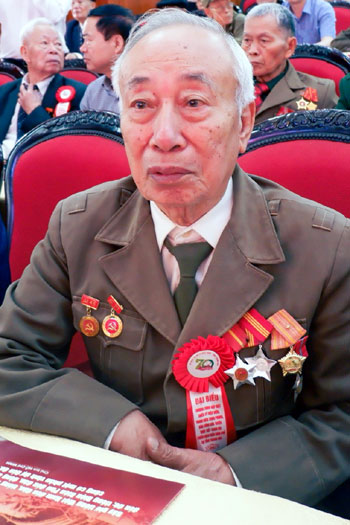 |
Around July and August 1953, following the call of the Party and Uncle Ho, I and more than 10 young men from Dong Hai commune (Dong Son district, Thanh Hoa province) volunteered to join the army. After the recruitment, we marched from Thanh Hoa to Dien Bien Phu, at that time no one knew what our mission was. The marching route was full of hardships as we crossed forests, streams, passes, and old forests, passing through places that no one had ever set foot on, having to destroy mountains and clear roads to march...
When I arrived at Dien Bien Phu, I was assigned to Company 388, Battalion 89, Regiment 36, Division 308, in charge of information and communications for Company 388. After a while, I was transferred to work as a communications officer for Battalion 89. At that time, comrade Le Chi Tho was the Deputy Commander of Battalion 89. Right from the moment we first met, my brother and I became close, shared and together overcame all the difficulties and hardships in the mountains and forests of Dien Bien.
The Dien Bien Phu campaign was about to begin on March 13, 1954, after receiving the order from comrade Le Chi Tho to launch the opening attack of the campaign, which was the attack on the Him Lam stronghold cluster. I immediately informed the 3 companies of my battalion, and immediately marched to attack the Him Lam stronghold cluster. After a night of fighting 3 times, by early morning our army had completely captured the Him Lam stronghold. But that morning, when I heard the news of victory, I also heard that comrade Le Chi Tho had heroically sacrificed himself along with many other comrades in the 89th Battalion. Comrade Tho's sacrifice made me unable to hold back my tears, heartbroken because a brother, a close comrade who had shared the hardships with me for so long was no longer there...
However, after the sacrifice of comrade Tho and many other comrades in Battalion 89, the officers and soldiers became more enthusiastic and determined to win and liberate Dien Bien Phu as soon as possible.
Although many years have passed, I and any soldier who participated in the Dien Bien Phu Campaign are still proud to have participated in the glorious campaign, a campaign that "resounded throughout the five continents and shook the world". And most especially, I cannot forget my comrade, my close brother who heroically fell in the opening battle of the campaign.
An Chi (written)
Dien Bien soldier Nguyen Van Du, Son Vy commune, Lam Thao district, Phu Tho province
Unforgettable memories
I was the Platoon Leader of Platoon 1, Company 317, Battalion 249, Regiment 174, Division 316, directly participating in the attack on Hill A1. After many fierce battles without capturing the stronghold, from April 20, the 83rd Engineer Team began digging tunnels. Company 317 was assigned the task of guarding the tunnel entrance, participating in digging and moving soil out. To keep the tunnel secret, the tunnel was dug at night. Many nights I also participated in digging tunnels and moving soil. After about 10 days, the excavation of the tunnel containing explosives, more than 50m long, was completed. We also participated in bringing explosives into the tunnel. On April 22 and 25, the enemy organized two battalion-sized counterattacks. Our troops from Chay Hill, from Hill A1, from the positions at the foot of the hill, concentrated firepower to block the front, and sent assault forces to attack from the flank, disrupting the formation. One battle burned tanks, another battle shot down enemy planes, forcing them to withdraw to Muong Thanh.
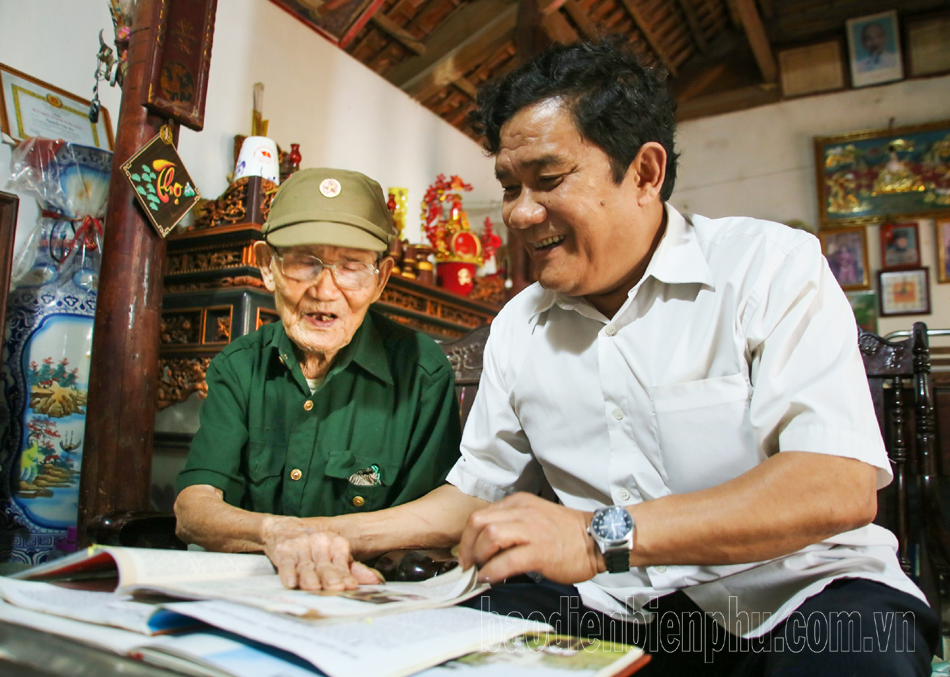
From 12 noon on May 1, our artillery again rained fire on Muong Thanh - Hong Cum. On Hill D, our 75mm artillery fired straight at C1. We were ready to destroy the enemy. Battalion 249 was ordered to occupy the battlefield, around Hill A1. Our Company 317 was also assigned to guard the tunnel entrance, protecting the 83rd engineering unit to do a good job of detonating a nearly 1,000kg explosive, destroying the enemy's underground bunker on May 6. To be sure, the Party Cell of Company 317 sent two volunteer suicide party members, in case the detonation failed, each comrade would carry a 20kg explosive and rush into the underground bunker to detonate it. But fortunately, the electric ignition plan was successful. At that time, I was lying not far from the tunnel entrance where the giant explosive was placed. On the right was an old bamboo bush and on the left were two suicide comrades holding the explosive, ready to rush into the tunnel as planned.
At the time the explosive exploded, I didn't hear anything, I only felt a force pushing me from the bottom of the hill, lifting me off the ground and the old bamboo bushes flew up with me and then fell down. Blood gushed out of my mouth and nose. I passed out in the night, in the fire, a few dozen meters from the foot of A1 hill. The next morning, people found me lying unconscious, next to an uprooted old bamboo bush. Luckily when I flew up, the old bamboo bushes didn't hit me, the dirt and rocks covered my face and nose. Seeing me covered in mud and blood but still breathing, my comrades took me to the emergency station. On the afternoon of May 7, I woke up, my ears ringing and I couldn't hear anything. I saw the medic raise his hand to signal, I just knew that A1 hill, the most important stronghold of the epidemic, had been destroyed by our army. That evening, I also learned that our army had destroyed and captured all the enemy troops in Muong Thanh and captured General De Castries alive. It was not until the morning of May 8, when my comrades transferred me to K5 Hospital, that I gradually regained consciousness and remembered my comrades in Platoon 1, Company 317, who were still alive, who were dead in the final battle on Hill A1. Later, I learned that Company 317 Captain Dang Duc Sa and 6 comrades of my Platoon 1 had heroically sacrificed themselves. Until now, I still cannot forget that battle and my comrades who devoted their lives to the historic Dien Bien Phu victory...
Phuong Thuy ( written)
Dien Bien soldier Duong Chi Ky, District 7, Ho Chi Minh City
The heroic battle of Hill A1
At the age of 90, Dien Bien soldier Duong Chi Ky returned to visit the old battlefield of Dien Bien Phu. He was moved when recalling the heroic memories of his youth.
In 1953, Mr. Ky and other young men of the same age followed Uncle Ho's call, put down their pens and volunteered to join the army. He and his comrades received orders to march to the Northwest, fought directly on the Dien Bien Phu battlefield, and were assigned to Regiment 174, Division 316.
He said: “We directly participated in the final general attack, building tunnels and trenches into the A1 stronghold. This was the most important high point in the eastern defense and was equipped by the French to become the strongest stronghold in the stronghold group. Therefore, before that, our army, directly the 174th Regiment (316th Division) and the 102nd Regiment (308th Division) had carried out 3 attacks on A1 but had not yet captured it.”
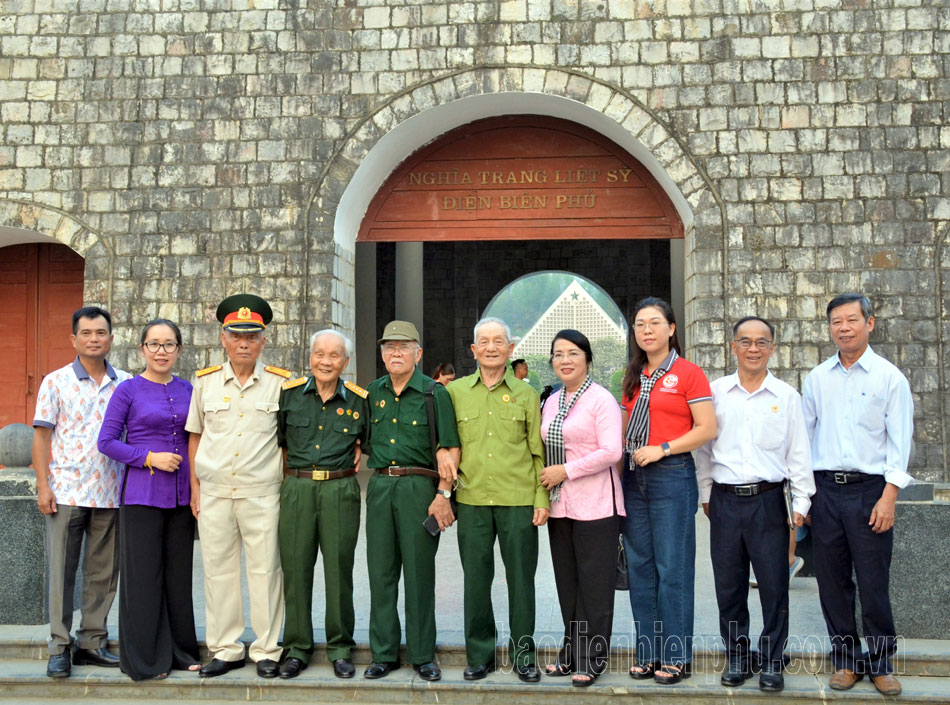
From the night of March 30, Regiment 174 launched the first fierce attack on A1. The enemy organized a strong counterattack, reinforced with tanks, artillery and air support. The regiment had to retreat and defend 1/3 of the base. The second and third attacks, we and the enemy fought for every inch of trench, in the end each side held half of the high point. From April 3 to May 6, our troops fought the enemy's counterattacks, firmly holding the captured base, while at the same time intensifying the wear and tear of the enemy's forces by sniping, raids, and seizing enemy parachutes... During this time, the engineering team secretly dug an underground tunnel to the enemy's bunker at the top of the hill. During 2 nights (April 4 and 5), nearly 1,000kg of explosives were transported and installed underground, ready to enter the new attack.
Mr. Ky recounted: “My comrades and I brought the 82 mortar to the battlefield from the evening of May 5. At 8:30 p.m. on May 6, when the general attack order was issued, the thousand-pound explosives were detonated, the explosion shook the hill, a number of bunkers, many trenches, gun emplacements and part of the enemy were destroyed. Seizing the opportunity, our troops opened fire. The enemy fought back frantically. The battle was extremely fierce with guns, grenades, bayonets and bare hands... By 4:30 a.m. on May 7, our troops had destroyed and captured more than 800 enemies and many of their tanks and vehicles. On the night of May 7, after the total victory, we withdrew our troops to our units, collected the spoils of war and then escorted French prisoners of war back to the plains.”
After a few minutes, Mr. Duong Chi Ky's voice dropped: "To defeat the foreign invaders, many of our officers and soldiers heroically sacrificed their lives in this battle. Back then, we devoted our youth, took up arms and went to the battlefield, "tasted the bitterness and lay on thorns" from sharing a handful of vegetables and a grain of rice, yet some remained on our motherland, some are still here. Since I scheduled to return to Dien Bien on this occasion, I have been restless many nights, counting the days to see my comrades again, to light a stick of incense for my fallen comrades. Coming here, I always miss my comrades, and I can't hold back my tears. I feel like my deceased comrades are by my side listening to my feelings, hoping that they will rest in peace.
Nguyen Hien (written)
Source








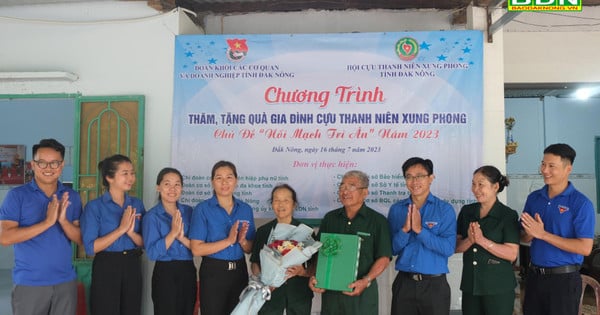

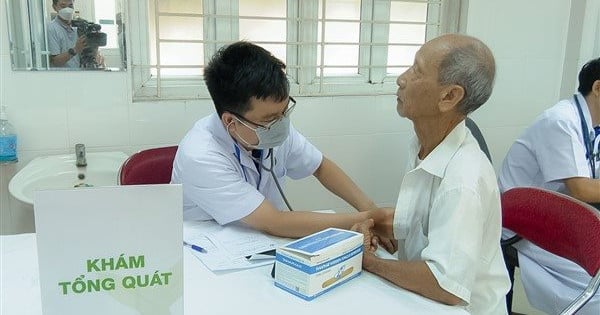

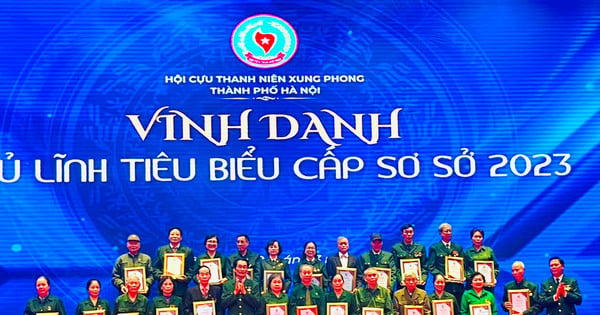



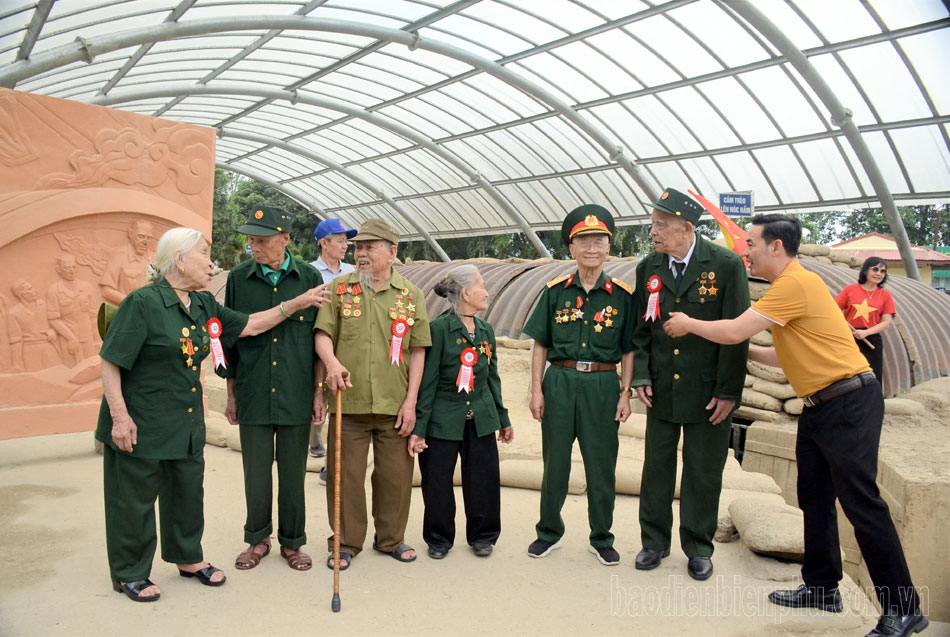








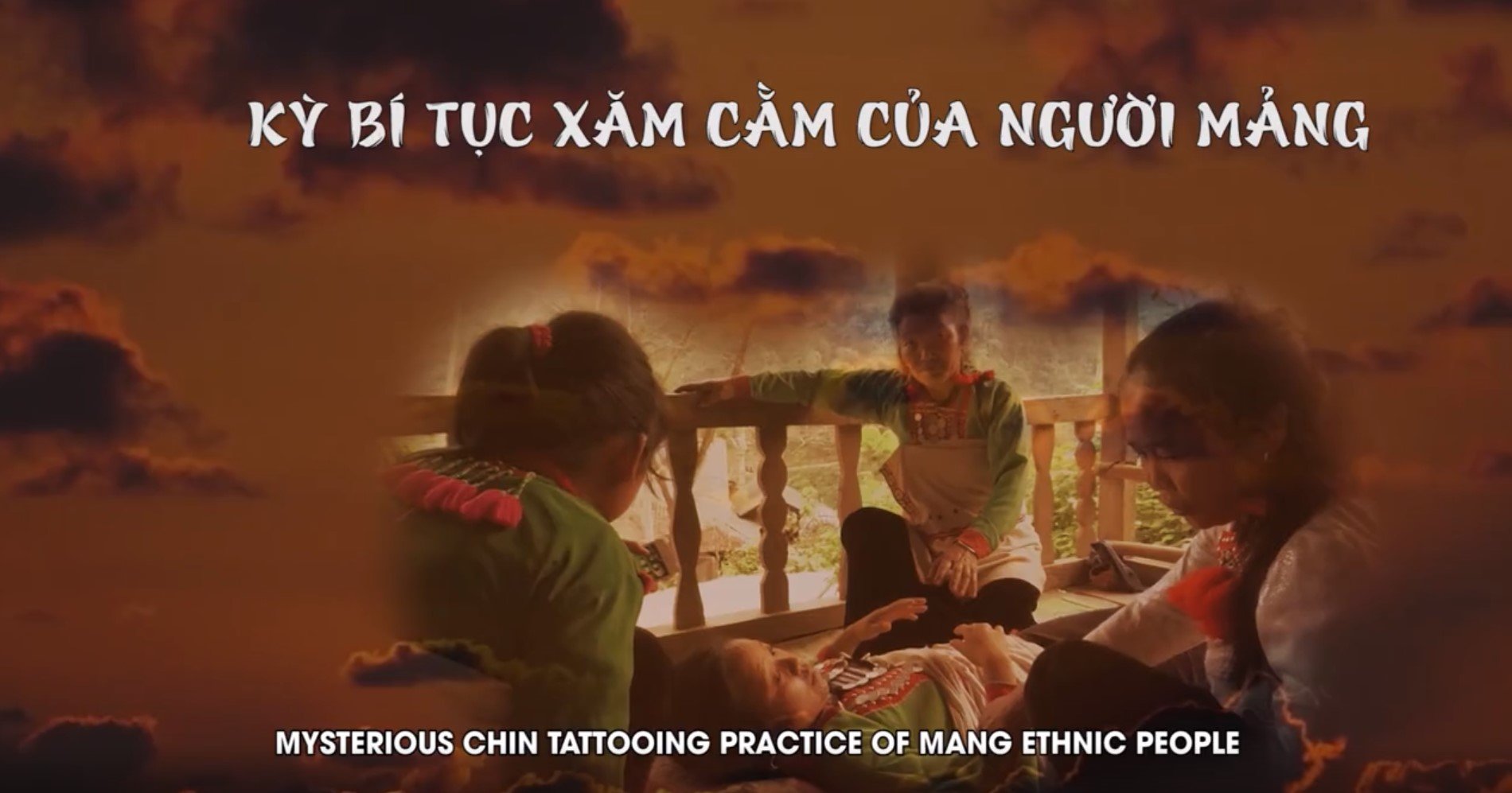
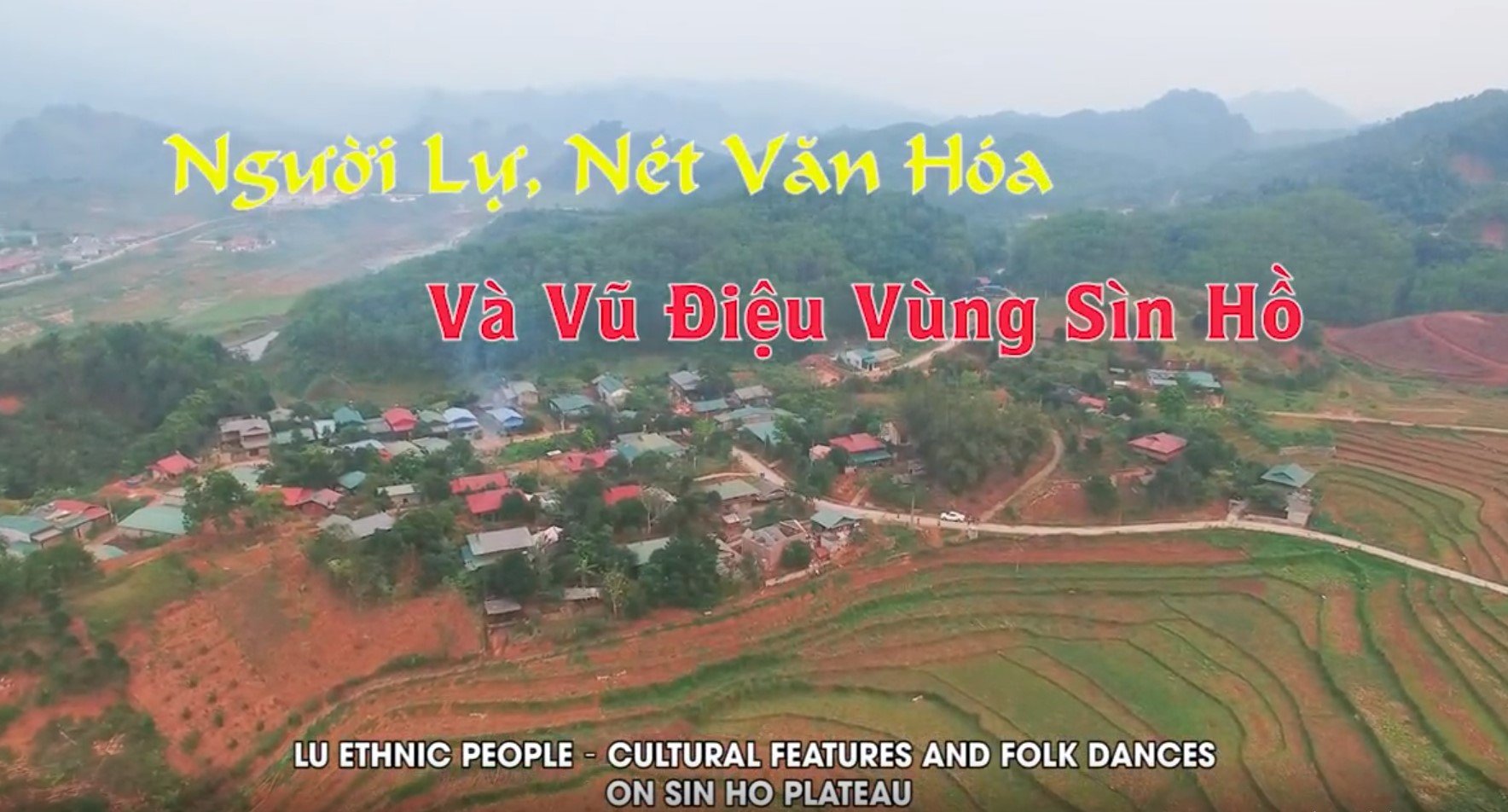


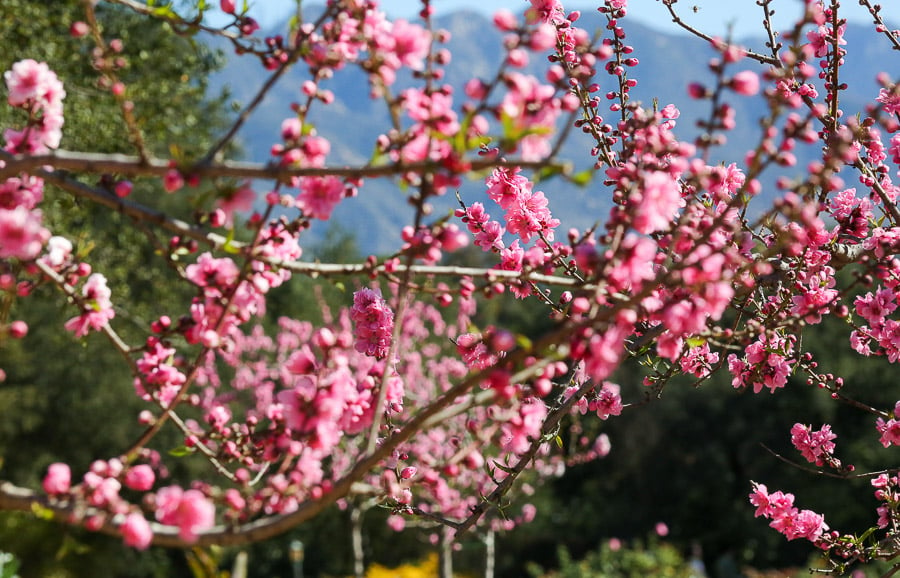








![[Photo] Prime Minister Pham Minh Chinh chairs Government Conference with localities on economic growth](https://vstatic.vietnam.vn/vietnam/resource/IMAGE/2025/2/21/f34583484f2643a2a2b72168a0d64baa)





















































Comment (0)